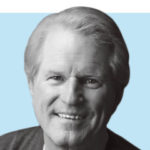
Photo by Patrick Kovarik
In May 2005, Arianna Huffington — a nationally syndicated columnist and the author of 13 books — launched The Huffington Post, a news and blog site that quickly became one of the most widely read, linked to, and frequently cited media brands online.
Last year, the site won a Pulitzer Prize for national reporting. In 2006 and again in 2011, Huffington was named to the Time 100, Time magazine’s list of the world’s 100 most influential people.
Originally from Greece, Huffington moved to England when she was 16 and graduated from Cambridge University with a master’s degree in economics. At 21, she became president of the famed Cambridge Union debating society, which, she told Convene, helped her get over a fear of public speaking and self-consciousness about her “thick Greek accent.”
Huffington recently shared with Convene her thoughts on leadership, learning, “and the power of bringing people together,” which she learned at her mother’s knee.
You are known to be a person with exceptional curiosity and interest in learning just about everything. How do you learn best? When you need to acquire new knowledge, what approach do you take?
Learning is a process, and whether I’m reading, or listening, or observing someone I admire, I learn best when I keep three things in mind. First, knowing that the thing you start with — like an idea or a product — probably isn’t going to be the thing you end with. And second, that failure is not the opposite of success, it’s a stepping stone to success. And third, that I love learning, but I particularly love learning from people who are really passionate about whatever it is they are teaching.
What value do you see in face-to-face conferences —the act of people gathering together in person to learn from and share with each other?
I see tremendous value in face-to-face conferences. In the Harvard Business Review, Walter Isaacson recently wrote about Steve Jobs’ strong belief in getting people together: “There’s a temptation in our networked age to think that ideas can be developed by email and iChat.…That’s crazy. Creativity comes from spontaneous meetings, from random discussions. You run into someone, you ask what they’re doing, you say, ‘Wow,’ and soon you’re cooking up all sorts of ideas.” So as virtual contact has become more common, face-to-face contact is more and more valuable.
What advice would you give to improve on conferences that you’ve seen and/or been part of?
Napping stations (for between events, of course). And more time for milling around. It’s often in the hallways and lobbies, rushing to catch the start of the next panel or session, that you end up learning a lot from random conversations.
When you convene groups of people to make major decisions, how do you go about doing that?
At HuffPost, we pride ourselves on being a flat organization, with very close cooperation among tech, design, and editorial. We thrive on our startup spirit of inviting as many voices to the conversation as possible. It’s an approach that’s in line with HuffPost itself, which as a site is dedicated to opening up conversations made of many voices, and bringing them online.
You are considered to be a leader in our society. How did you learn to be such a standout leader?
So much of what I know about leadership — and all things, really — I learned from watching my mother. This would have baffled her, because she did not think of herself as a leader! But she understood the power of bringing people together — especially in the kitchen. That was my mother’s secret: Fill their stomachs, and their hearts and minds will follow. Also, she taught me early on not to take myself seriously. Indeed, one of her favorite quotes was, “Angels fly because they take themselves lightly.”
Is leadership something that can be taught at conferences, and if so, how is it best done?
Yes, by bringing people together for honest, lively discussion with an emphasis on solutions. When we convene people from the same industry, it’s particularly important to challenge the conventional wisdom. For example, on a daily basis, I’m invited to media conferences filled with panels devoted to social media and how to use social tools to amplify a message. But very few of those panels ask — or even seem to care — what the hell is the message. It’s good at those moments to remember what Thoreau said: “We are in great haste to construct a magnetic telegraph from Maine to Texas; but Maine and Texas, it maybe, have nothing important to communicate.”
You were able to rise to prominence by speaking up for what you believe. How did you do that? Where did that courage come from?
My time at the Cambridge Union debate society helped me overcome my fear of public speaking — and of my thick Greek accent. That experience gave me the tools for the much taller order of speaking up for what I believe in.
Online learning and exchange is clearly something you value. As you look toward 2020 and beyond, what do you think learning will look like?
The brave new world of new media has opened up new universes of opportunities — allowing us to connect with people far away and in circumstances vastly different than our own. And when it comes to learning, examples abound. There’s the education entrepreneur Sal Khan, who started the online Khan Academy by posting videos on YouTube to tutor his cousins. And the fact that more than 200,000 people signed up last year when Stanford offered its most popular computer science classes for free, despite the fact that they didn’t get credit.
What are your dreams for the 21st century with regard to every human being having the opportunity to reach their potential, to have more equal opportunities for all people on this Earth? Are these big dreams possible?
The big dreams are possible. In order to get to them — and get to them faster — we need to, of course, keep talking about what we lack and have too little of, whether we’re talking about jobs, or opportunities, or good ideas coming from our leaders. But we need to start talking much more about our surpluses, like our creativity, ingenuity, and energy. Only then will we arrive at the solutions we so desperately need. I think the civic activist John Gardner said it best: “What we have before us are some breathtaking opportunities disguised as insoluble problems.”
‘Power of the Crowd’
In November, TED and The Huffington Post announced what they called “an exciting experiment” – to take place every weekend for the next year — in which a theme is introduced, linked to a TEDTalk, and opened up for viewers to write their own posts, leave a comment, and ask questions. In addition, graphic artists are invited to illustrate the essence of an idea visually — and, according to a news release, “the speaker behind the talk will be online chipping in to the conversation.” TEDWeekends is designed to take the best of TED, known for sharing great ideas in talk form, and combine it with The Huffington Post, “famous for amazing perspectives generated by its passionate audience. Together… there’s a unique opportunity to do something significant: Take a great idea, and use the power of the crowd to make it greater still.”



